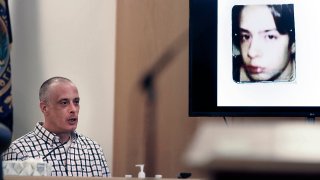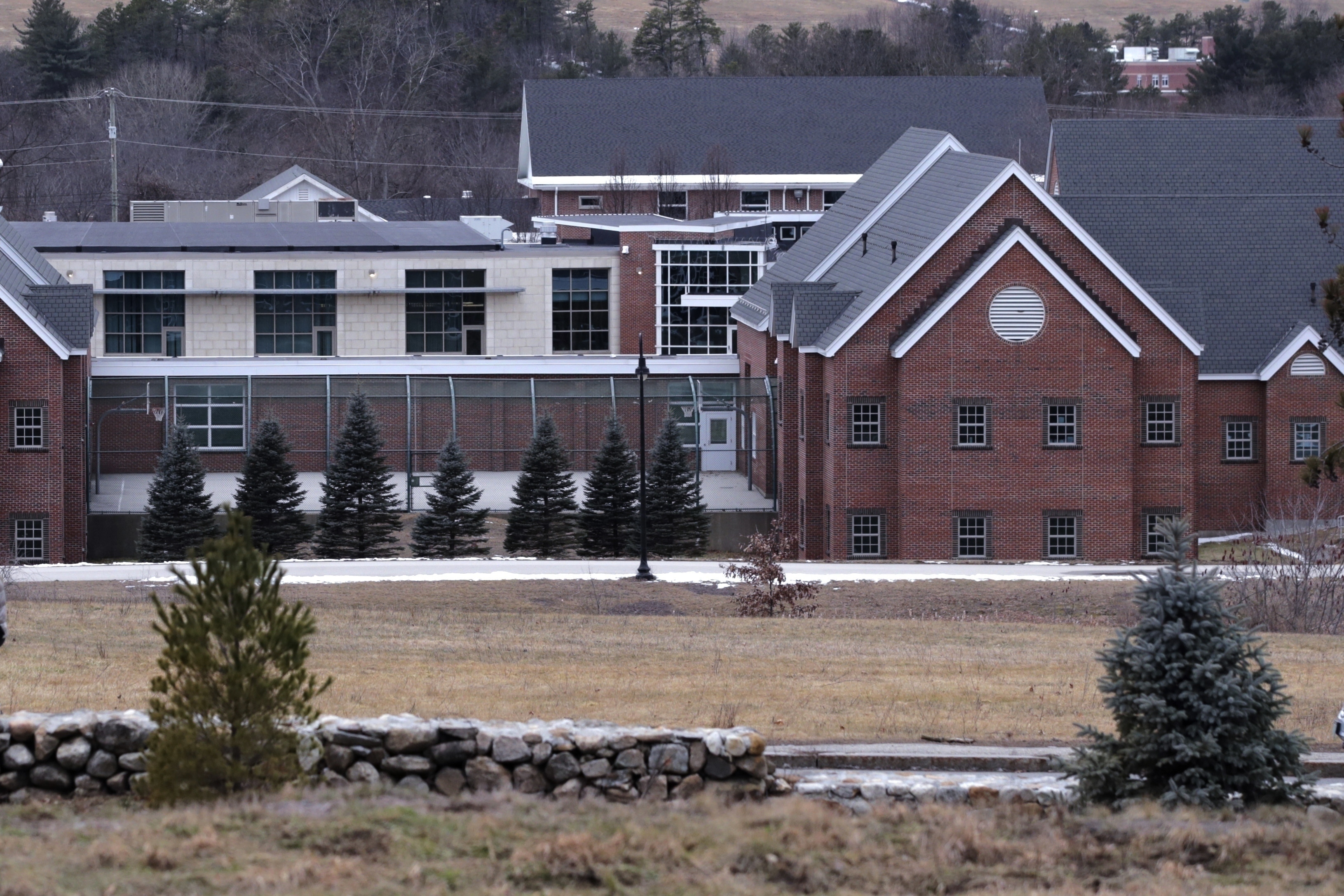
David Meehan, whose allegations of abuse at New Hampshire’s youth detention center sparked nearly a dozen arrests and more than a thousand lawsuits, finally took the witness stand Wednesday, seven years after he first told his wife, “They raped me.”
“I think I’m more ready than anybody else in this room to do this right now,” he said.
WATCH ANYTIME FOR FREE
>Stream NBC10 Boston news for free, 24/7, wherever you are. |
Meehan, 42, spent three years at the Youth Development Center, where he alleges he was repeatedly beaten, raped and locked in solitary confinement in the late 1990s. He went to police in 2017 and sued the state three years later. His lawsuit went to trial last week, and he began testifying Wednesday, describing his early years and arrival at the facility as a 14-year-old in 1995.
His attorneys displayed a photo of him as a smiling toddler clutching a football as he testified about physical abuse by his parents, including his mother’s habit of putting her cigarettes out on his face. They later displayed a closeup photo of Meehan’s face taken when he arrived at YDC and asked him to describe what he saw.
Get updates on what's happening in Boston to your inbox. Sign up for our >News Headlines newsletter.
“It’s hard to describe this scared little boy, who at the same time feels safe,” he told jurors as he remembered being handcuffed to a wooden chair during the intake process at YDC. “I’m not worrying about where I’m going to sleep tonight, I’m not worrying about what I’m going to eat. It’s hard to explain that amount of emotion and distress.”
Since Meehan came forward, authorities have arrested 11 former state workers, and more than 1,100 former residents have filed lawsuits, arguing the state’s negligence allowed six decades of abuse. The state argues it is not responsible for the actions of “rogue” employees.
Meehan was the first to sue and go to trial. In testimony punctuated by long pauses, he described running away, breaking into homes to steal food and clothing, and once a gun that he hoped to sell. He said he and another teen escaped from a sheriff’s cruiser on their way to court after the older boy warned him of sexual abuse at YDC, and he spent time in a pre-trial detention center in Concord where he was involved in an attempted escape that resulted in a riot.
Earlier Wednesday, Michael Gilpatrick, another former resident whose time at the facility overlapped with Meehan’s, continued testifying about the “constant horror.” A staffer choked him until he lost consciousness and he awoke to find another man sexually assaulting him, he said. In another attack, two staffers beat and raped him, he said.
“I just remember sitting on my bed crying," he said. “Blaming myself for being there, feeling ashamed, wondering what I did in this world to deserve this.”
Every assault “seemed like it lasted forever, because it kind of did,” Gilpatrick said.
Released just shy of 17, Gilpatrick said he quickly ended up in the adult criminal justice system, spending a dozen years behind bars for drug-related crimes. For many years, he didn’t recognize that he was abused as a child, he said.
Now a married father of three who owns a waterproofing business, Gilpatrick said all he learned at YDC was how to become a hardened criminal, take a beating and keep his mouth shut.
“Everything I went through there, I normalized," he said. "That’s what I felt like life was supposed to be. When I got out of there, all the way to 2015, I was in and out of jails and prison because I thought that was where I was supposed to be.”
Gilpatrick also confirmed to attorneys for the state that he had no personal knowledge of Meehan being physically or sexually abused.
The men accused of abusing both Meehan and Gilpatrick have pleaded not guilty to criminal charges but have yet to go to trial. The attorney general's office has been both prosecuting suspects and defending the state in the civil cases, creating an unusual dynamic in which they will rely on the testimony of former residents in the criminal cases while undermining their credibility in the civil cases.


